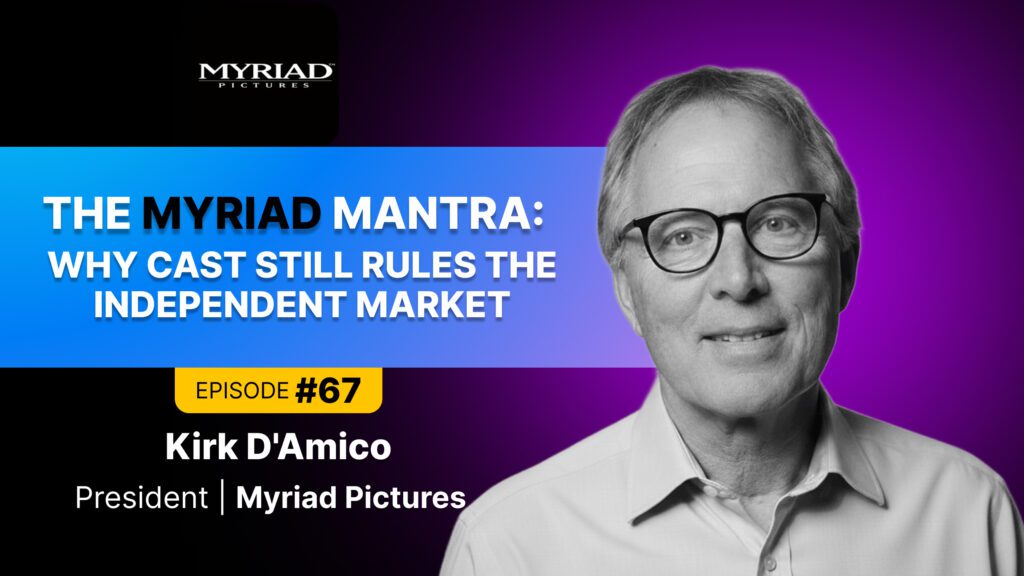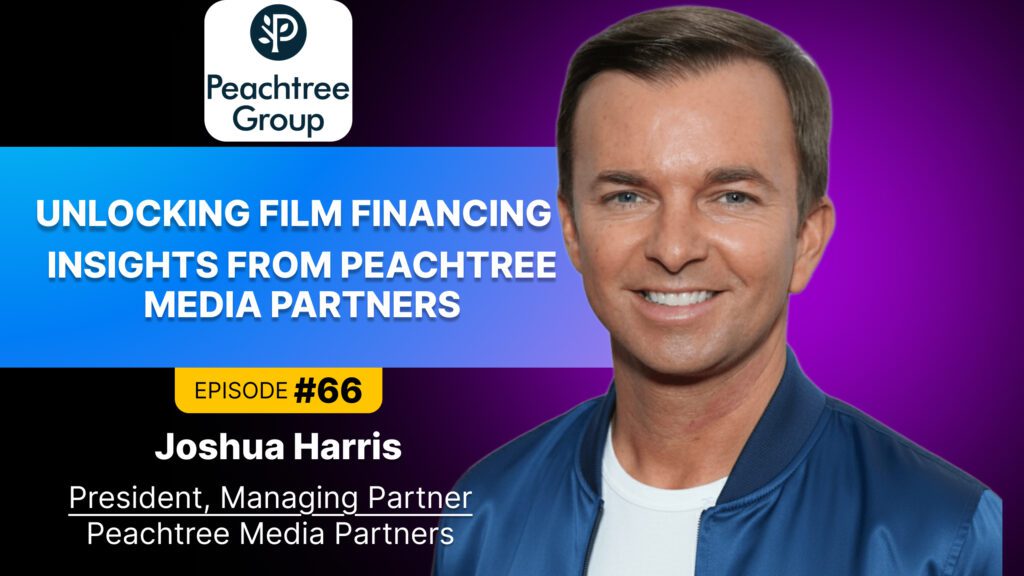
Podcast Chapters
| Timestamp | Chapter Title |
| 00:00 | Introduction to the MENA Market and Arabic Content |
| 03:52 | The Evolution of Film Distribution in the Middle East |
| 07:57 | Understanding the Saudi Market and Its Challenges |
| 10:16 | Shifts in Content Economics and Distribution Models |
| 16:08 | Navigating Production Across Different Arab Countries |
| 22:48 | Advice for International Content Acquisition in the MENA Region |
| 25:38 | The Ramadan Content Surge |
| 36:47 | Production Financing in 2026 |
| 40:05 | Government Incentives and Collaboration |
| 42:21 | Future Partnerships and Market Expansion |
Key Takeaways:
-
“MENA’s Growth Edge: The only global territory with rising content demand, attracting major investment.”
-
“End of DVD Safety Net: Digital killed home video revenue; reliance now on theatrical and TV.”
-
“Arabic Content Premium: Local stories sell up to 10× more than Western titles.”
-
“Saudi’s Double-Edged Market: Largest theatrical hub, but volatile and hit-or-miss; local hits rarely travel.”
-
“Innovation vs. Gatekeepers: Risk-averse decision-making stifles originality and fresh ideas.”
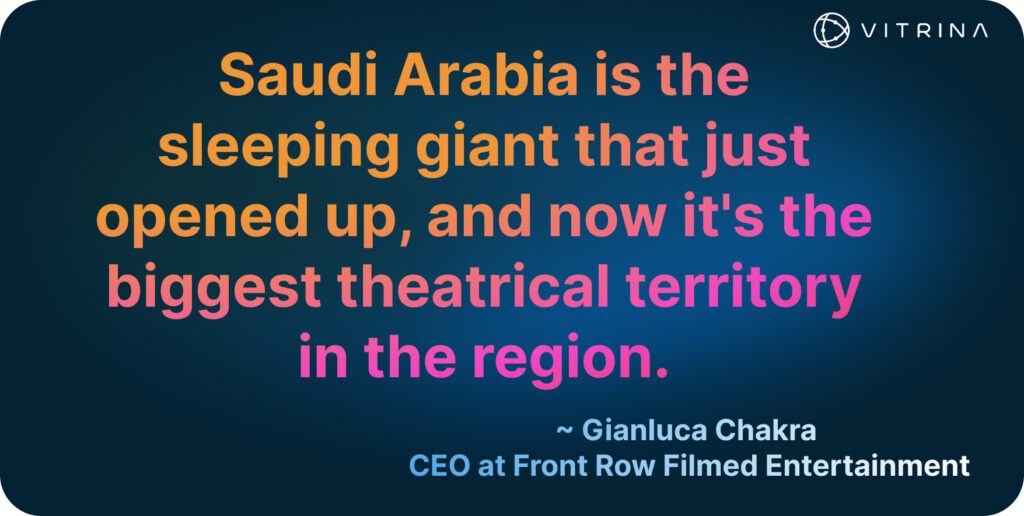
Sound Bites:
- The Middle East right now is the only growing territory worldwide, so everybody’s really looking at this territory quite closely.
- Like you could sell an Arabic language title like 10 times more than a good Western title. And if not more than a Spider-Man.
- However, [Saudi Arabia] is still a territory that we need to understand, including Saudis need to understand it because it’s very much a hit-or-miss.
- The most value was Pay TV… Now it’s Pay TV, but Pay TV is also acquiring SVOD rights.
- The more commercial it is for the region, the less it travels.
Projects Mentioned in the Podcast
Fahrenheit 9/11, City of God, The Ides of March, Where Do We Go Now?, Sandcastle, Cliffhanger Reboot, Jason Statham Film, The Smashing Machine.
Why Partner With Front Row Filmed Entertainment?
- Digital Pioneer with Global Access: Front Row pioneered the PVOD window in MENA and maintains strong, established relationships with major platforms like Apple, Google, and Netflix.
- Reputation for Cutting-Edge Content: They are known for distributing and producing thought-provoking, challenging films. Their first production sparked a “healthy debate” by normalizing a gay character and featuring swearing, which boosted the film’s success.
- Data-Informed Production Success: Their 23-year history as a distributor, with 95% of acquisitions based on scripts , informs a unique strategy for developing high-demand, cross-border Arabic IPs.
- Extensive MENA Distribution Reach: They maintain a long-standing network, acquiring 100 to 120 titles a year for distribution across the entire Middle East, North Africa, and the Arabian Persian Gulf.
- Proven Crisis-Driven Growth: During COVID-19, Front Row showed exceptional resilience, shrinking windows and selling their catalog to platforms, resulting in their “biggest year ever”.
In Conversation with Gianluca Chakra, CEO at Front Row Filmed Entertainment
This is a written version of the Vitrina LeaderSpeak podcast, featuring Gianluca Chakra of Front Row Filmed Entertainment, summarized for quick reading. The discussion is presented here in an easy-to-digest Q&A transcript format.
LeaderSpeak Q&A: Gianluca Chakra, Front Row Filmed Entertainment
1. Vitrina: Could you provide a quick overview or “elevator pitch” of Front Row Filmed Entertainment, detailing its core business and various lines of operation within the Middle East and North Africa (MENA) market?
Gianluca Chakra: Front Row Filmed Entertainment is an independent film distribution company that I founded almost 23 years ago, based in Dubai. We pre-buy a lot of films, acquiring about 100 to 120 titles a year for distribution throughout the entire Middle East, North Africa, and the Arabian Persian Gulf. In the last three to four years, we expanded into production for the region to fill a gap and satisfy the changing business needs of streamers. We prioritize local content—Arabic language films, feature films, and TV, and are now exploring reality shows.
“And in the last three, almost four years, we also started producing for the region given that there’s a gap and given that the business is changing, you need to satisfy the streamers and so on.”
2. Vitrina: Front Row has a long history in the MENA market. Can you share the founding story and how you initially developed your model, especially given the market’s traditional focus on commercial content?
Gianluca Chakra: I started this company 22 years ago, literally from nothing. When I decided to come here, I was simply a film geek, focused on the films, not the business. I was lucky enough to start when DVD was a big thing, which really built the company. While the market mainly bought cast-driven action films, we started off with films like City of God. We slowly changed the mentality by finding an audience for independent films on DVD, which helped us build a brand based on the titles we were getting. Our first big theatrical release, a documentary, Fahrenheit 9-11, bankrolled our company.
“And that’s sort of bankrolled our company, you know? And then along the way, we started signing strategic partnerships…”
3. Vitrina: The market’s content business economics have changed drastically, moving from traditional windows like theatrical, DVD, and Pay TV, to a streaming-led model. How have these windows shifted, and which new market is emerging as the next big bet?
Gianluca Chakra: The traditional windows of theatrical, then DVD, then Pay TV, and finally Free TV have changed. Now, not everything releases theatrically. Pay TV channels like Bein and OSN remain leading players, but they also have their own SVOD platforms and acquire those rights. Global platforms like Netflix, Prime, and Shahid.net (MBC’s platform, the biggest SVOD for local content) are now major players. The Free TV market has shrunk considerably. The next big bet is the AVOD (advertising video on demand) market, which I believe will eventually take over SVOD, returning to an on-demand, ad-supported traditional TV model.
“I think the next big bet right now is the AVOD market, so the advertising video on demand. I think this is a market that’s or a medium that at some point is going to take over as VOD.”
4. Vitrina: You mentioned the explosion of SVOD platforms. How has this, along with the decline of Free TV, impacted the content choices and the value of Arabic language titles in the Middle East?
Gianluca Chakra: The Free TV market’s decline didn’t impact us much as it was never a big part of our model, largely due to its reputation for being “quite corrupt”. The major shift is the massive demand for local language titles. There’s no comparison in value: you can sell a good Arabic language title for like 10 times more than a good Western title, and sometimes more than a Spider-Man. People want relatability. Furthermore, due to the Middle East being in the global news, there’s growing international curiosity and demand for our content.
“Like you could sell an Arabic language title like 10 times more than a good Western title. And if not more than a Spider-Man. It’s that for Middle East.”
5. Vitrina: Saudi Arabia’s cinema market has opened up and is now the biggest theatrical territory in the region. How has this new “sleeping giant” impacted the MENA market, and what are the key challenges in this territory?
Gianluca Chakra: Saudi Arabia opened up six or seven years ago and is now the biggest theatrical territory in the region. Initially, everything worked due to the novelty. However, it is still a territory we, including Saudis, need to understand, as it’s very much a hit-or-miss market, even with local content. The big challenge now is shaping the maturing market, as it is very expensive to release and produce over there. It’s still an immature market, but with the right content and partnerships, things will fly.
“However, it’s still a territory that we need to understand, including Saudis need to understand it because it’s very much a hit-or- miss.”
6. Vitrina: Given the market’s complexity and the different tastes, how do the various content production hubs in the region (Egypt, Lebanon, Saudi, etc.) differ in terms of genre, appeal, and exportability?
Gianluca Chakra: Egypt has always been the Hollywood of the Middle East with over a hundred years of history, and its culture/dialect is understood by the entire region. Lebanese cinema is considered the quality cinema and is more arthouse; it has value internationally but less locally, where it works on TV. Saudi cinema so far has been hit-or-miss, and while the most local content works best in Saudi, it still doesn’t travel well even around the Middle East. Kuwaiti content (plays and TV shows) is the only Gulf content that really travels (on SVOD/TV, not theatrically). The challenge is that the Middle East is not one “Arabia”; every country has a completely different culture.
“Lebanese cinema has always been considered, you know, the quality cinema of the Middle East. which, know, in the Levant works a lot for TV. It’s very much seen. However, theatrically, it’s got value internationally more than locally…”
7. Vitrina: You made a big pivot into production recently. What motivated this move, and how is Front Row trying to innovate and break the traditional “gatekeeping” and “same cast, same genre” model of the region?
Gianluca Chakra: We shied away from production for a long time but decided to get in because we wanted to do things differently. Front Row is known to distribute cutting-edge, thought-provoking films, and we wanted our productions to reflect that. Our first film, a remake of an Italian film, was groundbreaking: it was the first time that you had infidelities, swearing, and a normalized gay character on screen, which created a “healthy debate”. The industry has often been compared to “Russia in the nineties”—one model, same cast, same genre—which retains audiences but doesn’t grow them. We need innovation to break the “gatekeeping” where those approving a show would rather do a version of what they did the year before to avoid getting fired if the new concept fails.
“It was the first time where we normalized a gay character on screen. So that kind of created, you know, havoc or a healthy debate.”
8. Vitrina: Looking ahead to 2026, what are your strategic plans regarding partnerships, new markets for distribution, and the push for a more sustainable production and development ecosystem in the region?
Gianluca Chakra: For distribution, we’re looking at territories like Turkey because the value of acquiring Turkish rights is currently quite small, and we could acquire rights for both the Middle East and Turkey with the right partners. For production, the region desperately needs funds that encourage more and more development. Most content is currently developed, produced, and released in about six months, which compromises quality. I believe there will be a lot of consolidations in the next two to three years, making companies more valuable and providing easier access to funds that can then be divided for development and production. This will help implement a new vision for the Middle East.
“The more commercial it is for the region, the less it travels.”
——————————————————————————————————————————–
MENA's Digital Distribution Leader: Front Row Filmed Entertainment
Front Row Filmed Entertainment is a leading distribution and production company headquartered in Dubai. Founded over 23 years ago by Gianluca Chakra, the company began as an independent film distributor, acquiring 100–120 titles annually for the entire MENA region.
Front Row was a pioneer of the premium VOD (PVOD) window in the Middle East, forging strong digital partnerships with global platforms such as Netflix, Apple, and Google.
Building on this expertise, the company expanded into original production, developing cutting-edge Arabic-language content. This strategic shift is designed to meet the growing demand from streamers while driving innovation in the rapidly evolving Middle Eastern entertainment market.


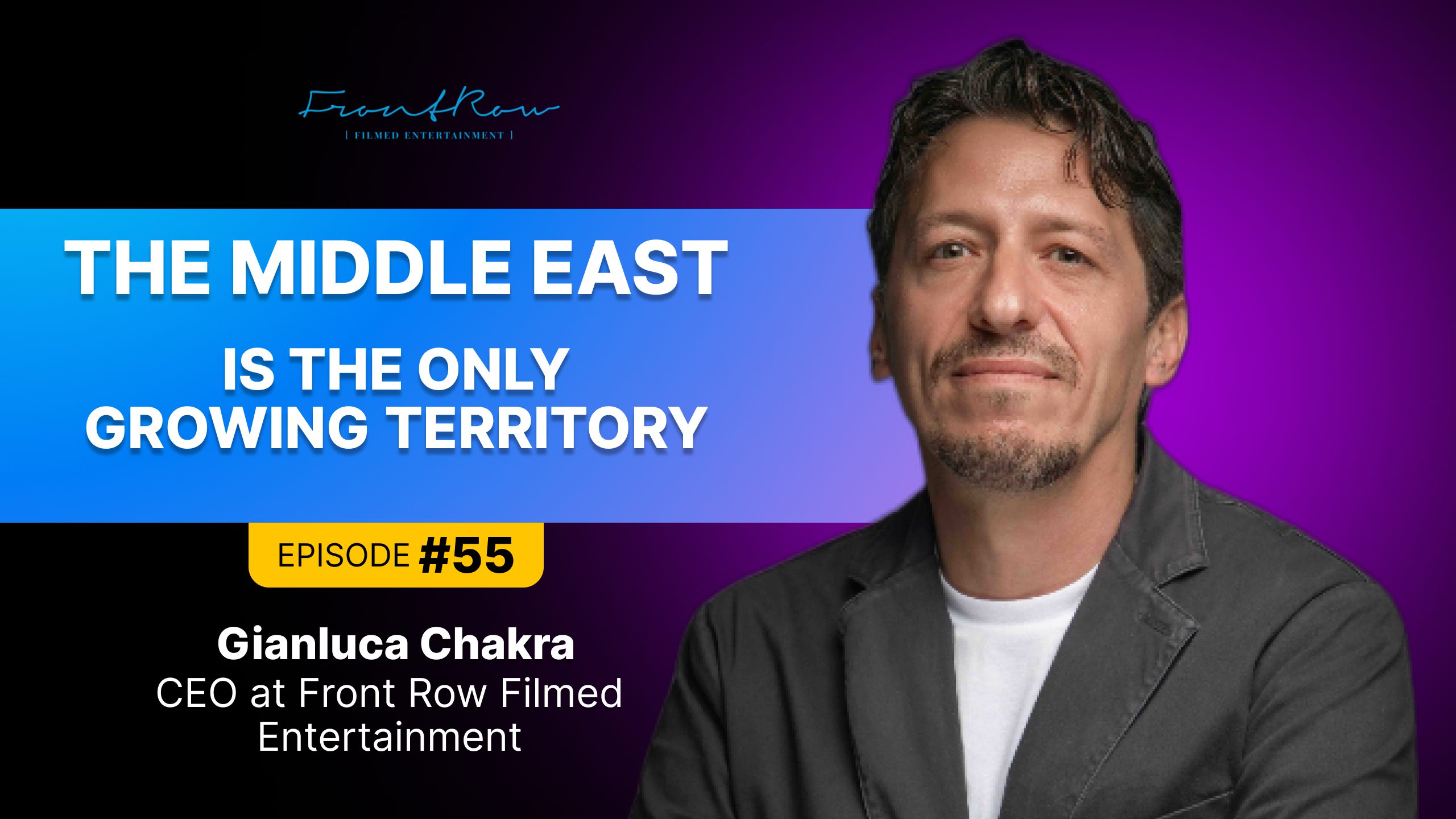
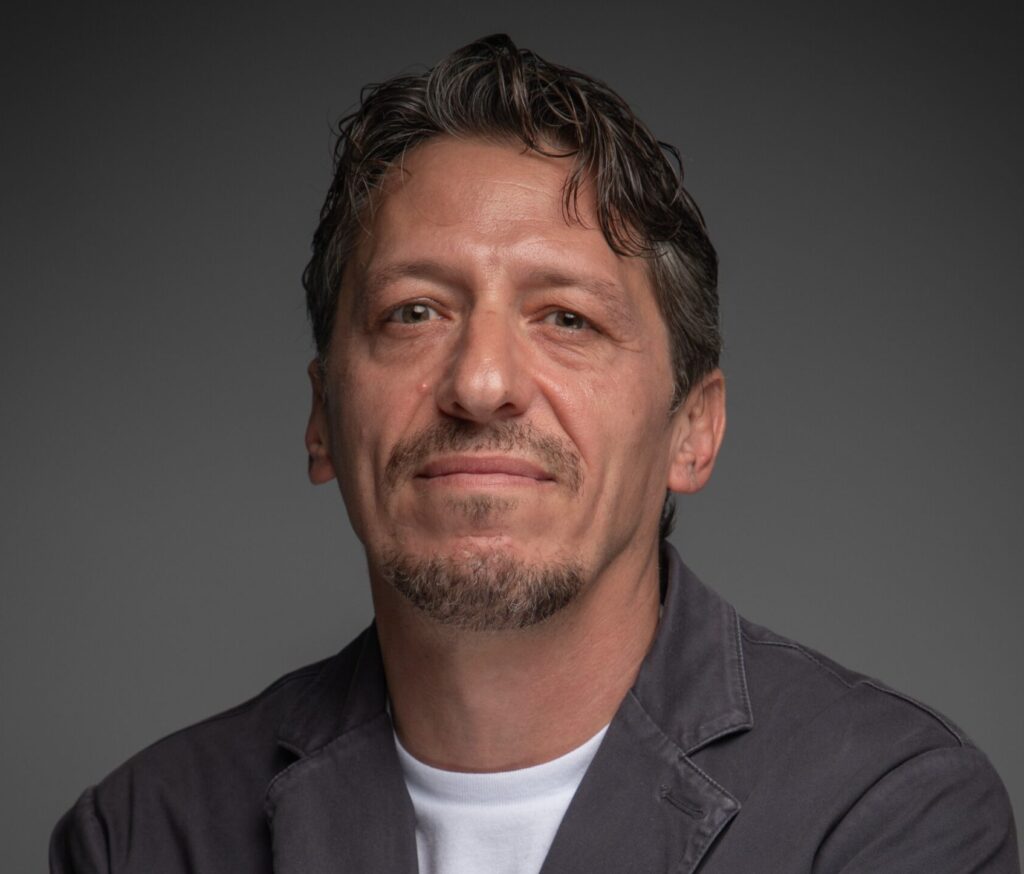

 Dubai, United Arab Emirates
Dubai, United Arab Emirates

